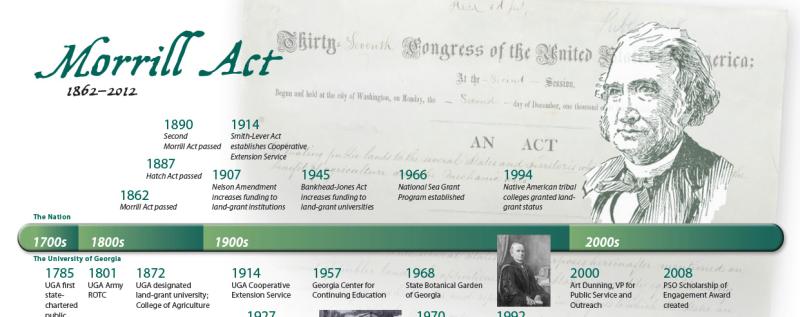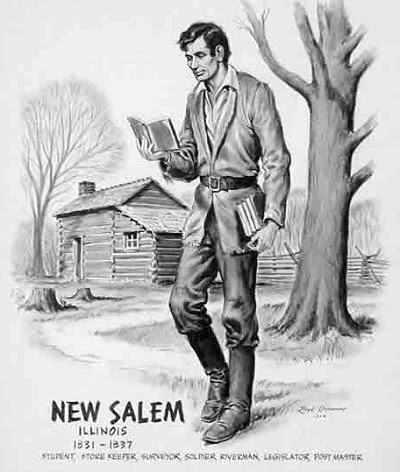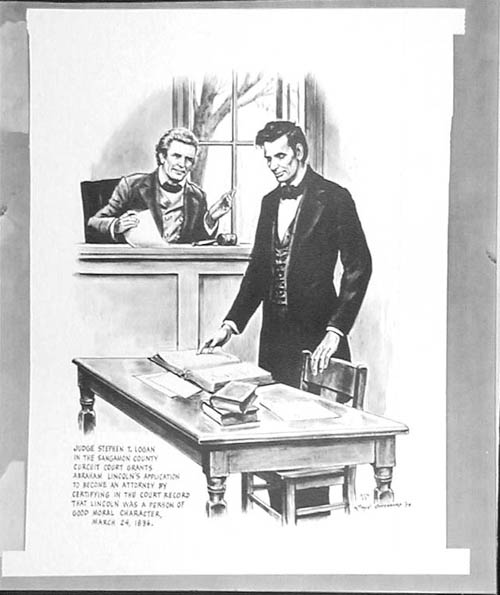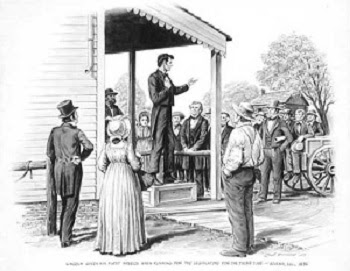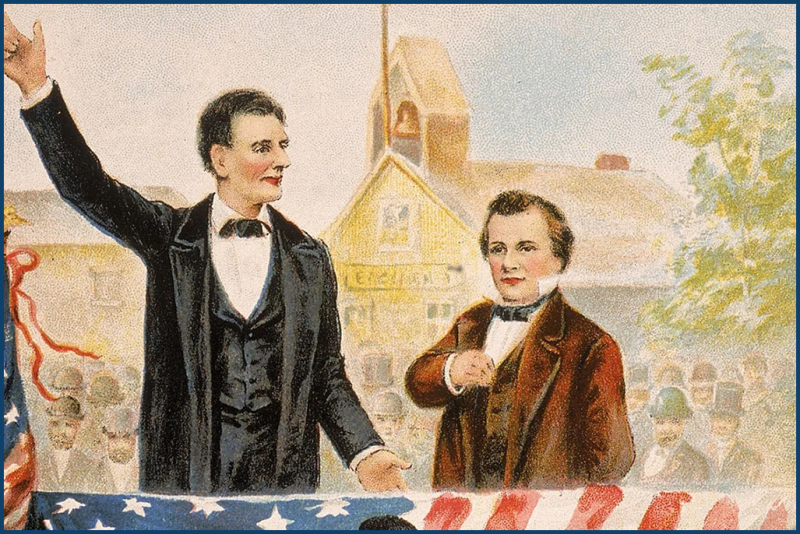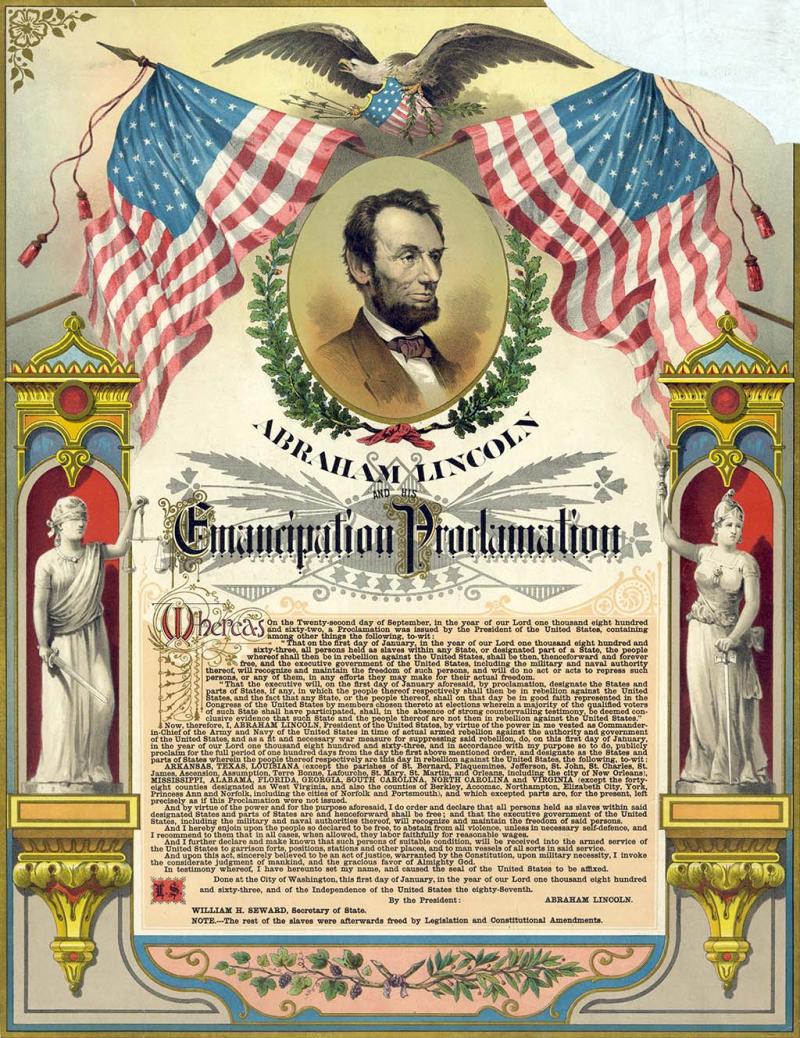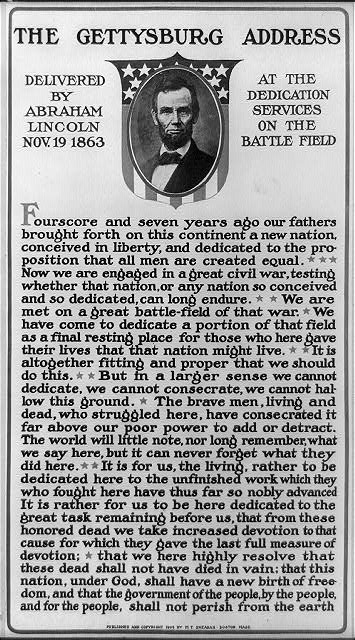Abraham Lincoln Contributed to UIUC's Creation and its Mission | ||
 448 448  0 0  0 0 | ||
| Abraham Lincoln was the 16th President of the United States, revered for leading the Union through the Civil War and abolishing slavery. The University of Illinois at Urbana-Champaign (UIUC) prominently features Abraham Lincoln because he played a pivotal role in the university's founding. In 1862, Lincoln signed the Morrill Land-Grant Act, which provided federal land to states for establishing colleges focused on agriculture and mechanical arts; UIUC was subsequently founded in 1867 under this act. Honoring Lincoln thus recognizes his crucial contribution to the university's creation and its mission.
Lincoln grew up in a poor family with limited access to formal education, but taught himself to read and write, devouring books whenever he could find them. To support his family, he worked as a farmhand, rail-splitter, storekeeper, and postmaster. These jobs provided him with invaluable experience working with different people and understanding their concerns.
Lincoln taught himself law and became a successful lawyer, known for his honesty and ability to connect with juries. He argued cases across Illinois and developed a reputation for fairness and pragmatism.
As Politician, he served in the Illinois State Legislature and then in the U.S. House of Representatives. He opposed the expansion of slavery, even though it wasn't a popular position in Illinois at the time.
Before the Presidency (40s-50s), Lincoln emerged as a leading voice against the expansion of slavery during the Lincoln-Douglas debates in 1858. These debates, while he lost the Senate seat to Stephen Douglas, brought him national recognition and framed him as a thoughtful and articulate opponent of slavery.
During his Presidency (52-56 Years Old), he led the Union through the Civil War (1861-1865):
Abraham Lincoln's pivotal contribution to the abolition of slavery lies in his Emancipation Proclamation, a strategic wartime measure that declared the freedom of slaves in Confederate territories, fundamentally shifting the moral and political landscape of the Civil War and paving the way for the 13th Amendment, which constitutionally abolished slavery. His insight was recognizing the moral imperative to end slavery while also understanding the strategic advantage of weakening the Confederacy and bolstering the Union cause by enlisting Black soldiers and rallying abolitionist sentiment. Over 150 years later, Lincoln's actions continue to resonate in the ongoing struggle for racial equality in the United States, serving as a powerful symbol of progress while simultaneously highlighting the persistent challenges of systemic racism and the unfulfilled promise of true equality for all Americans.
The Gettysburg Address, though brief, cemented Lincoln's legacy by redefining the Civil War not merely as a battle to preserve the Union, but as a struggle to realize the nation's founding promise of equality for all. His insight lay in framing the war's sacrifices as a dedication to that unfinished work and a call for a "new birth of freedom," thereby elevating the conflict to a moral imperative. Over 150 years later, the Address continues to inspire American ideals of unity, equality, and democratic governance, serving as a touchstone for civil rights movements and political discourse, constantly reminding the nation of its responsibility to live up to its founding principles and strive towards a more perfect union.
As a member of Illinois, I am incredibly proud to have the opportunity to learn at UIUC. I will learn a lot here at UIUC, a haven of learning in the land of opportunity, America.
Tags: Abraham Lincoln Civil War Emancipation Proclamation Gettysburg Address Illinois State Legislature Morrill Land-Grant Act UIUC History | ||
| | ||
|
 1922
1922 